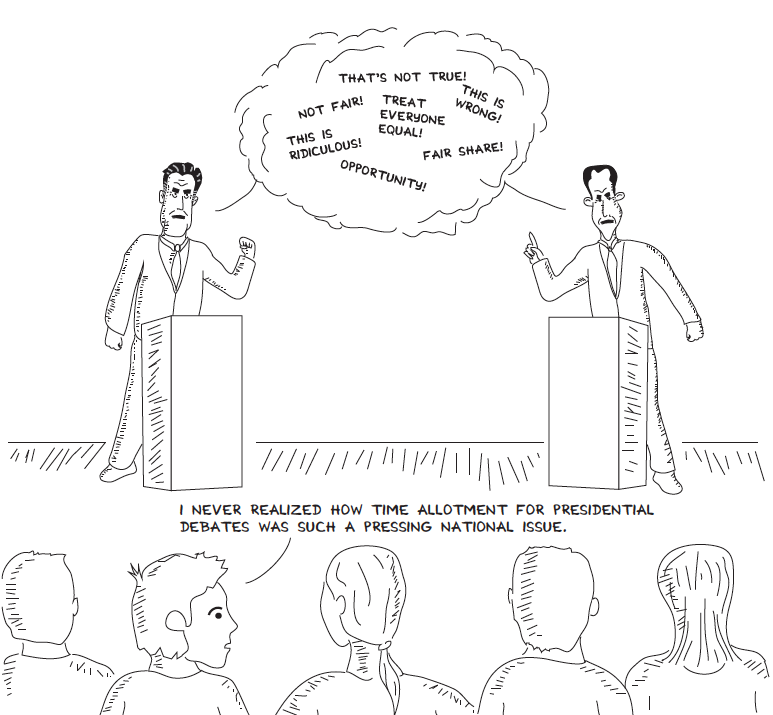
Last Thursday night, the Tribune’s editorial board sat in Johnston Hall discussing editorial topics as usual. As we reflected on this year’s election results and what they mean, our discussion became the most focused and passionate one we had ever experienced together.
We had a heated conversation about politics, voting, the role of identity, racism, sexism and how society has changed. And as we brainstormed what we wanted to say in Tuesday’s editorial, our discussion got pretty intense.
There were raised voices, interruptions, swearing and actual tears shed. On several occasions, one person in the group stopped the others and reminded everyone to speak one at a time and to listen first to what was being said without getting ahead of ourselves.
We all had individual opinions and often disagreed, but we were each still able to bring a unique perspective to the conversation. No one dismissed anyone else’s thoughts as crazy or wrong but approached them with respect and a willingness to learn. Once the discourse was over, we all fell silent for a moment, emotionally drained but happy with what we had accomplished.
That’s when we realized that the quality of our discussion was better than our editorial could ever be.
We all walked out of that meeting feeling incredible, despite the yelling and the disagreements. One member of the board said it had been “easily the best conversation (he’s) had in all four years at this university,” and that too often, “learning” in college is reduced to a professor reading from a PowerPoint presentation instead of presenting a variety of opinions and seeking truth from them.
This is the beauty of conflict, and too often we shy away from it.
Many people avoid making waves or starting conversations about controversial topics like politics, religion and money. But why do we deliberately ignore the topics we feel strongest about?
College is the place for these sorts of discussions and disagreements. The very purpose of higher education is to expose ourselves to new ideas and move beyond our comfort zones. We’ll never be surrounded by this many viewpoints at any other time in our lives, so we should take advantage of them while we can. Instead of trying to pacify opposing views in a conversation and appease everyone, we should challenge ourselves and our beliefs to embrace these differences head-on.
The easy way out is to dismiss conflict with “everyone is entitled to her or his own opinion” or “let’s just agree to disagree.” So many times, once the tension of disagreement arises within a discussion, we backpedal to find the lowest common denominator upon which we can agree and then abruptly move along to a new topic, pretending the disagreement never happened. Then we incredulously simplify the opposing opinion later when relaying the conversation to someone else we know will agree with us. This is unhealthy and unproductive.
We should learn from differing opinions and ask questions about them. The viewpoints we don’t understand or agree with are really the ones we have the most to learn from. This is more likely to occur when we’re disagreeing with our friends, because we’re less likely to demonize their opinions like we would to those of polarizing politicians or incendiaries on the Internet.
As annoying as a devil’s advocate can sometimes be, one is necessary to consider all sides of a story or an issue. Before you take a stance, engage with someone who has a different point of view. Once you have considered the counterargument, you will have a greater understanding of possible flaws in your own viewpoint.
We want to see our campus filled with more intelligent and meaningful discussions like the one we had last week. We’ve already seen some of these happening throughout the year thanks to Marquette’s Big Questions initiative. So please keep bringing forth questions that make you think deeply.
Embrace debate, and don’t be afraid to disagree. The only incorrect voice is a voice unheard. We want to know what you think.
In the Tribune office, we celebrate whenever we have a great reader’s submission. We appreciate thoughtful, constructive comments and will try to publish them when possible. We are your campus newspaper, and we want to use the Viewpoints section to interact with you. If you have something you want to say, submit it. We are your forum for discussion.
We are not saying these discussions and questions will lead to some sort of uniform answer, but we believe they will lead to a journey of self-exploration and teach us all to truly value dissenting opinions.





